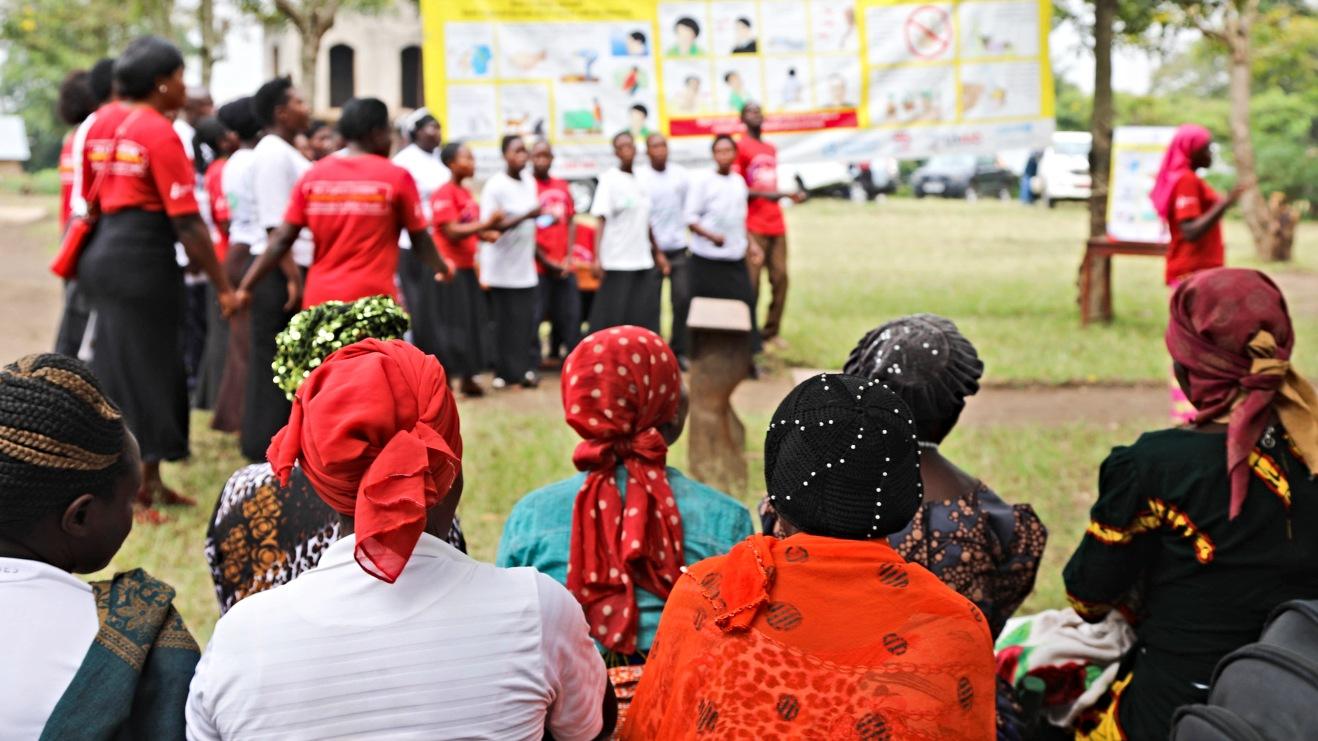Duncan Green and Mohga Kamal-Yanni analyse the latest developments in Worm Wars.
Should I blog about things that are way over my head? Well it’s never stopped me in the past…… My LSE colleague and Director of the Firoz Lalji Centre for Africa, Tim Allen, along with Melissa Parker and Katja Polman have edited an issue of the Journal of Biosocial Science on ‘Biosocial Approaches to the Control of Neglected Tropical Diseases’. It’s open access and worth a skim, because even though it’s health-techie, it contains some pretty explosive stuff.
In particular, Allen and Parker lob another can of petrol on the ‘Worm Wars’ fire with ‘Deworming Delusions’ a damning account of the way routine deworming has become an iconic development intervention in East Africa on the basis of highly questionable evidence and dodgy ethics.

To recap, deworming school age children is claimed to improve attendance rates, and so educational attainment. A famous 2004 study by Michael Kremer and Edward Miguel using data from Kenya in the late 1990s found a reduction in absenteeism of 25%, following deworming with albendazole at 6-month intervals. On the basis of this study, a vast industry was founded – ‘According to the Gates Foundation, this is the largest public health programme ever attempted. The relevant tablets are being donated in huge quantities by leading pharmaceutical companies, and free preventive chemotherapy is being rolled out on a massive scale, with countries in Africa setting the pace.’
But that edifice is pretty shaky. First Allen and Parker review the many conflicting studies and conclude:
‘Assertions about the effects of school-based deworming are over-optimistic. The results of a much-cited study on deworming Kenyan school children, which has been used to promote the intervention, are flawed, and a systematic review of randomized controlled trials demonstrates that deworming is unlikely to improve overall public health.’
Tim is an anthropologist and so spends a lot of time investigating how people on the ground understand what is going on. His approach is the exact opposite of trying to distil an impersonal, decontextualized ‘scientific truth’ about the efficacy or otherwise of drug programmes – he highlights the human dimension and concludes:
‘There are social problems arising from mass drug administration that have generally been ignored. Notably, there are serious ethical and practical issues arising from the widespread practice of giving tablets to children without actively consulting parents.’
It was this second aspect that got my attention (I really cannot follow the endless to and fro over methodology between protagonists in the Worm Wars). The authors point to a WHO recommendation in School Deworming at a Glance: ‘Don’t waste time and resources trying to examine each school or child. Deworming drugs are safe and can be given to uninfected children. No individual diagnosis, or assessment of each school is needed.’ The trouble is that:
‘Research carried out in Uganda and Tanzania has shown that deworming tablets can have side-effects, which are viewed as serious in local terms. Many children complained of stomach upsets after being treated in schools, some adults were incapacitated for days, and there were uncorroborated rumours that a few individuals had died. Such experiences and stories led to widespread anxiety and fear, and fostered rumours about the real purpose of the treatments. They also prompted a different kind of resistance in the form of a refusal to distribute or take the tablets, and occasionally confrontations with angry parents. … If schools in a high-income setting were instructed to treat all children with a drug regime that would only benefit a minority, it would raise concerns. Indeed, it would probably be viewed as completely unacceptable to roll out such treatment without securing the consent of parents beforehand.’
But for the Worm War battlers, the authors conclude ‘the issue at hand is the divergent interpretations of data published in an old paper, rather than the actual effects of deworming policies on African children and their relatives’.
My impressions from all this? That the solidity of ‘evidence-based policy’ is often much more tenuous than is claimed – what is presented as ‘hard evidence’ is often contested just as fiercely as any historical or social science claim. The search for scientific certainty can easily lead researchers into ignoring the ‘biosocial’ – the interplay of norms, practices, opinion, politics and power that shapes how any apparently neutral intervention plays out. And maybe that we need more anthropologists as well as medics and economists.
Other essays in the issue address this wider point. In the introduction on the wider topic of “neglected tropical diseases”, the editors say:
‘Social priorities, social relations and social behaviour profoundly influence the design, implementation and evaluation of control programmes. Yet, these dimensions of neglect are, themselves, neglected. Instead, emphasis is being placed on preventive chemotherapy – a technical, context-free approach which relies almost entirely on the mass distribution of drugs, at regular intervals, to populations living in endemic areas.’
I asked one of Oxfam’s health gurus, Mohga Kamal-Yanni, for her views, and got this in response:
‘I share a lot of their concern on programmes that ignore the local (and medical actually) realities and needs. The world faced the same issue in responding to Ebola. Donors wanted to rush workers in space suits to tell communities what to do and tell patients to come to treatment centres (where people knew they would die). It took few valuable months for donors and governments to realise that they had to first understand the local reality and to engage people in planning and performing activities.
Worms eat away kids’ nutrients and therefore negatively affect their health and their cognitive abilities. Deworming programmes could be beneficial to kids’ health and education if they were implemented with local knowledge and participation. Like many development programmes, it is not a question of what, but how.
I loved that somebody critiques the perception of “community” as a homogenous group that loves and cares for each other. Such beliefs are also widely accepted even within NGOs, as if people in the South are different from people here. I remember in the 80s an Oxfam engineer was shot at because of disputes over the site of the water projects in a small isolated village. For me “community” equals power relations whether that grouping of people is a remote village in Sierra Leone or a neighbourhood in London.
However, I disagree with the authors on their analyses of the concept of “neglected diseases”. I think the concept has been very useful in raising attention and investment in research for treatment of diseases such as TB and sleeping sickness, where the only options available for doctors have been very old complicated regimes or even toxic medicines. In reality these diseases have been way off the radar screen of pharmaceutical companies because they will not make profits from selling a medicine to a poor African patient. It is only now, after much global effort, including by civil society, that governments, the pharmaceutical industry and philanthropist have engaged in researching new diagnostics and medicines for these diseases. It is worth noting that some of the medicines used for deworming, like albendazole, were actually developed for veterinary use (where profit is possible) and are very cheap to produce. “Neglected diseases” are the stark example of the failure of the current global R&D system to produce health technologies needed for public health. The system is driven by commercial profits based on pharmaceutical companies’ monopoly on medicines.
I wish I had time to blog about socio-medical interventions!’
Well now she has – note to colleagues, careful when sending me interesting emails, you never know where they’ll end up……
The article was first published on Oxfam’s From Poverty to Power blog.
Dr Duncan Green is a Senior Strategic Adviser for Oxfam GB and a Professor-in-Practice at LSE.
Dr Mohga Kamal-Yanni is a Senior Health and HIV Policy Adviser for Oxfam GB.
The views expressed in this post are those of the authors and in no way reflect those of the Africa at LSE blog or the London School of Economics and Political Science.






